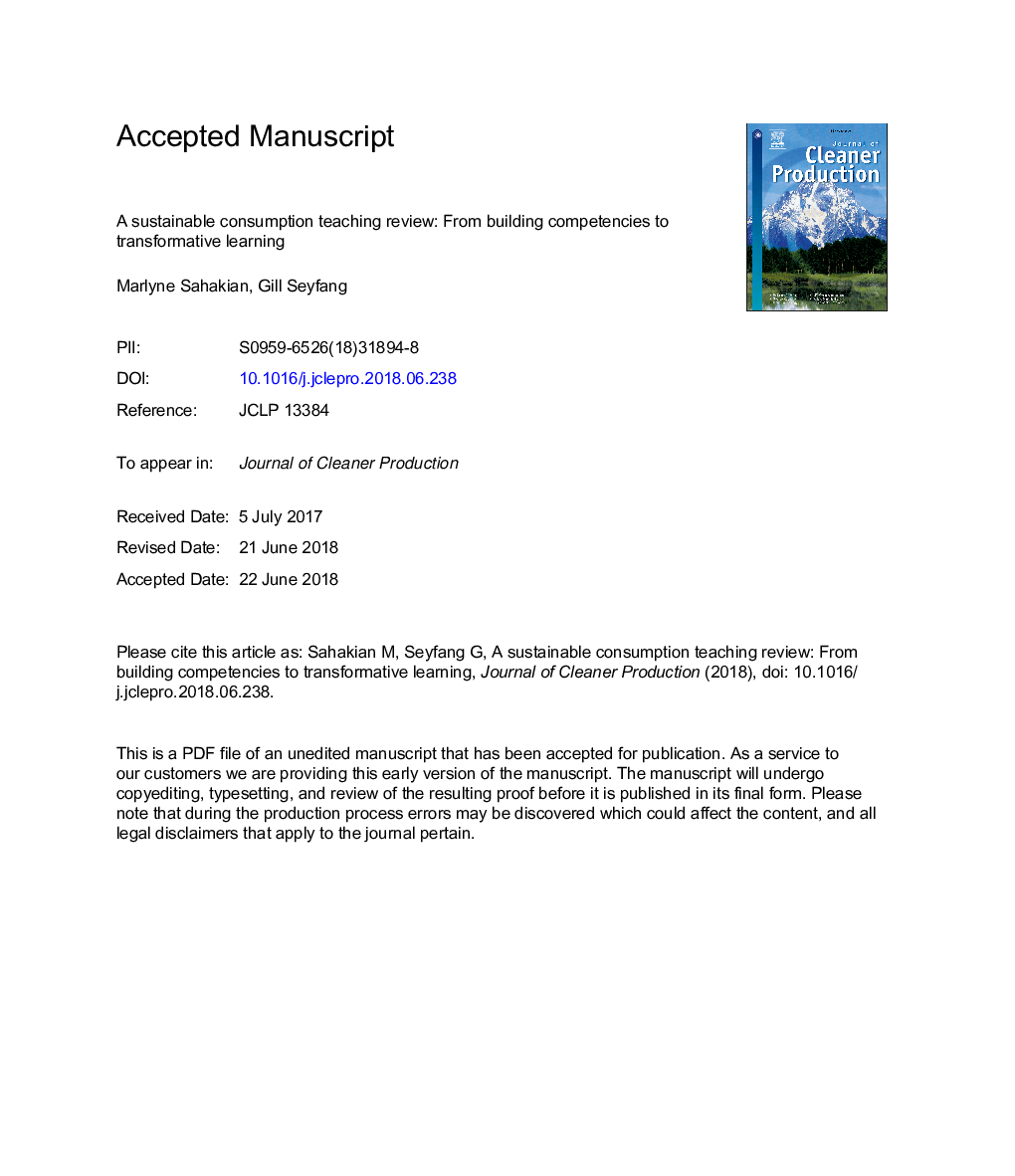| Article ID | Journal | Published Year | Pages | File Type |
|---|---|---|---|---|
| 8093449 | Journal of Cleaner Production | 2018 | 23 Pages |
Abstract
Sustainable consumption (SC) is a growing area of research, practice and policy-making that has been gaining momentum in teaching programs among higher education institutions. Understanding how, in what way, and what we consume, in relation to environmental integrity and intra/inter-generational equity, is a complex question, all the more so when tied up with questions of social change, justice and citizenship. To understand and address (un)sustainable consumption, different disciplines and related methodologies are often brought together, ranging from sociology, economics and psychology, to political science, history and environmental engineering. Combining and indeed transcending disciplinary approaches is necessary, and what better place to explore these approaches than in the classroom? In this article, a review of sustainable consumption teaching is presented in relation to learning competencies, with discussions around emerging topics related to this theme, as well as promising approaches towards transdisciplinary learning. Examples of how action-oriented, learner-cantered and transformative approaches can be put into practice are also provided. In the conclusion, emerging trends are discussed, along with challenges and opportunities for teaching sustainable consumption in the future.
Keywords
Related Topics
Physical Sciences and Engineering
Energy
Renewable Energy, Sustainability and the Environment
Authors
Marlyne Sahakian, Gill Seyfang,
